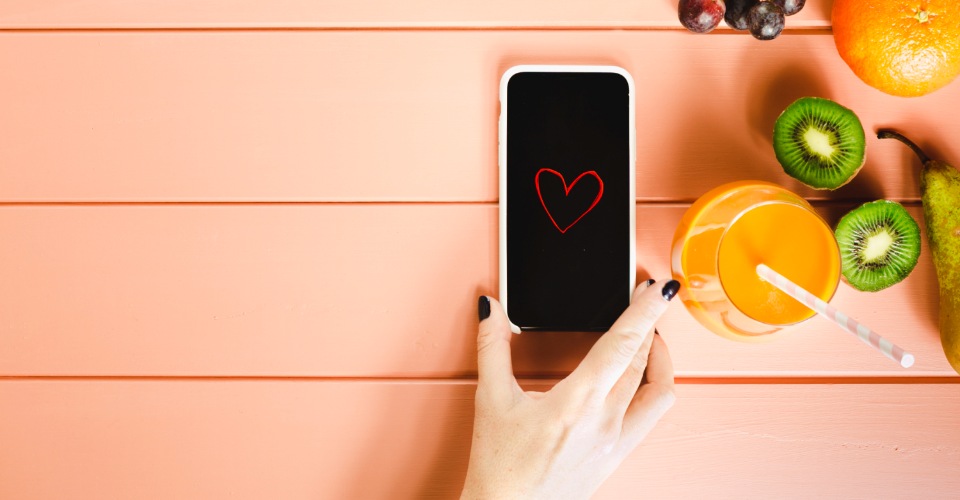A Love Story Beyond Anxiety
Valentine’s Day focuses on love and connection. When your partner faces anxiety, celebrating can be tough. Anxiety doesn’t pause for holidays.
You can provide support through empathy and understanding.
Here are practical ways to strengthen your bond:
- Communicate openly about feelings.
- Plan low-pressure activities.
- Create a calming environment.
- Offer reassurance and patience.
Remember to take care of yourself as well.
How do you plan to support your partner this Valentine’s Day?
Understanding Anxiety in Relationships and Its Impact on Relationships
Anxiety affects millions globally. In the U.S., about 18% of adults experience anxiety disorders annually. This condition can significantly influence relationships, especially during emotionally charged times like Valentine’s Day.
What Is Anxiety?
Anxiety involves persistent feelings of fear and worry. These feelings can range from mild to severe and may disrupt daily life. Various factors contribute to anxiety, including genetics, environmental stress, and unresolved emotional issues. While occasional nervousness is normal, an anxiety disorder involves overwhelming feelings that don’t match the situation.
How Anxiety Affects Emotional Health
In romantic relationships, anxiety can harm emotional health. It may lead to feelings of inadequacy and self-doubt. Partners might struggle to understand the symptoms, complicating their ability to offer support.
Anxiety can also distort perceptions of love. Individuals may feel unworthy of affection or believe their partner’s love is conditional. Such thoughts can weaken emotional connections, particularly during times when affection is highlighted, like Valentine’s Day. This often results in emotional withdrawal, tension, and frustration.
Anxiety can significantly affect romantic relationships through various behaviors. Here are some key impacts:
- Avoidance: Individuals with anxiety might steer clear of certain situations or discussions. This can include avoiding topics that could enhance the relationship. As a result, partners may feel neglected or disconnected.
- Irritability: Anxiety often leads to increased irritability. This can manifest as frustration over minor disagreements or misunderstandings, creating tension between partners.
- Reassurance-Seeking: A person with anxiety may frequently seek reassurance from their partner. This can foster dependency, placing pressure on the partner to alleviate the anxious person’s fears. Over time, this can lead to emotional exhaustion for both individuals.
These behaviors can become especially pronounced during significant events, such as Valentine’s Day. One partner might feel overwhelmed by expectations, leading to frustration or withdrawal. How do you navigate these challenges in your relationship?
Mutual Frustration and Misunderstanding
When anxiety isn’t addressed, it can harm the emotional health of both partners.
Partners who lack understanding of anxiety might see anxious behaviors as emotional unavailability or indifference. This misinterpretation can create frustration and a sense of helplessness for both individuals.
According to the National Institute of Mental Health, 40% of people with anxiety struggle to maintain healthy relationships due to these misunderstandings.
If anxiety remains unaddressed, it can lead to feelings of helplessness, leaving both partners feeling drained and frustrated.
Anxiety significantly impacts emotional health and relationships. When ignored, it can create distance between partners.
To address this, consider these strategies:
- Foster open communication. Share feelings and concerns regularly.
- Understand each other’s love languages. This helps partners express affection in ways that resonate.
- Engage in self-care practices. Prioritize individual well-being to enhance the relationship.
With the right tools and support, couples can manage anxiety. This is especially important during emotionally charged times, such as Valentine’s Day.
How do you currently address anxiety in your relationship?
7 Practical Ways to Support Your Partner
Valentine’s Day offers a chance to celebrate love and strengthen connections. For couples dealing with anxiety, it’s a moment to enhance emotional health and foster understanding. Here are ways to support your partner during this time.
1. Listen With Empathy
- Acknowledge their feelings: Use phrases like, “I understand this is hard for you.” This validates their emotions.
- Avoid judgment: Even if their fears seem irrational, don’t dismiss or belittle them. Respect their perspective to build trust.
- Be present: Practice active listening without interruptions or unsolicited advice. This shows care and support.
Why It Matters
Anxiety disorders affect 18% of adults in the U.S. each year, impacting personal and romantic relationships. Listening with empathy eases anxiety and strengthens emotional bonds.
Tips for Practicing Empathy
- Create a safe space: Choose a quiet, comfortable setting for discussions.
- Mirror their words: Repeating key phrases shows you’re engaged in the conversation.
- Ask open-ended questions: Encourage your partner to express themselves fully without fear of judgment.
Bonus Insight: The Role of Love Language
Understanding your partner’s love language can improve your connection. For example:
- If their love language is words of affirmation, offer verbal support.
- For acts of service, help ease their daily stress by assisting with tasks.
By practicing empathy and tailoring your approach to their needs, you support your partner’s mental well-being and nurture your relationship. Make this Valentine’s Day a meaningful celebration of love and understanding.
2. Communicate Openly: Strengthening Emotional Health in Relationships
Open communication forms the backbone of healthy romantic relationships, especially when anxiety arises. On Valentine’s Day, fostering an environment where your partner feels heard and valued is crucial. Here are some strategies to enhance communication with care and empathy:
Use Simple, Non-Judgmental Language
- Use relatable terms instead of complex ones. For example, say “stress” instead of “anxiety.” This approach makes discussions less daunting.
- Frame your questions to express curiosity and support, avoiding any judgmental tone.
Focus on Listening
- Practice active listening. Pay attention to their words and body language without interruptions.
- Validate their feelings. You might say, “I understand this is tough for you,” even if their fears seem irrational.
Ask How You Can Help
- Don’t assume what they need. Everyone has a unique love language and coping mechanism for anxiety.
- Ask gently, “What can I do to support you right now?” This shows respect for their autonomy while offering assistance.
Why Communication Matters
Research from the American Psychological Association indicates that 70% of individuals with anxiety experience improved emotional health when their partners actively listen and validate their feelings. Empathetic communication can ease tension and strengthen closeness in relationships.
Valentine’s Day Tip
As you plan your Valentine’s celebration, check in with your partner about their comfort level. Whether it’s a quiet dinner or a heartfelt conversation, prioritizing emotional health can enhance your time together.
Open communication doesn’t resolve every issue, but it establishes a foundation for a stronger bond—not just on Valentine’s Day, but every day.
3. Encourage Professional Help for Emotional Health
Valentine’s Day celebrates love and connection. However, maintaining healthy romantic relationships often involves addressing emotional challenges. If your partner struggles with mental or emotional health, therapy can be a valuable resource. Here’s how to encourage professional help while being supportive:
Normalize Seeking Therapy
- Frame therapy as a common way to tackle emotional challenges.
- Share examples of how counseling has helped others improve their relationships.
- Emphasize that seeking help shows strength.
Suggest Therapy Respectfully
- Use “I” statements to express concern, like, “I’ve noticed you seem overwhelmed, and I think therapy could help.”
- Focus on empathy and a genuine desire to support them, avoiding judgment.
Provide Moral Support
- Offer to help research therapists or counseling services.
- Accompany them to appointments if they feel nervous, but respect their choice.
- Allow them to make the final decision about seeking help.
Highlight the Benefits
- Studies show couples who attend therapy report a 75% improvement in relationships and emotional well-being (source: APA).
- Therapy can help partners understand each other’s love languages, enhancing communication and emotional intimacy.
Why Self-Care Matters in Love
Supporting a partner’s emotional health is an act of love. Remember to practice self-care as well. Healthy relationships thrive when both individuals prioritize their mental well-being.
4. Practice Self-Care Together
Valentine’s Day offers a chance to focus on emotional health alongside romance. Practicing self-care together can strengthen your bond and enhance your relationship.
Engaging in relaxing activities is vital for mental and emotional well-being. Consider these options:
- Partner yoga or stretching
- Meditation sessions to center your minds
- Guided deep breathing exercises
- Journaling together to reflect on shared experiences
Research shows that mindfulness and yoga can improve mood, reduce anxiety, and boost happiness. Doing these activities as a couple not only promotes relaxation but also deepens your emotional connection.
This Valentine’s season, prioritize each other’s well-being. Create a peaceful and loving environment together. How will you incorporate self-care into your celebration?
Plan Small, Anxiety-Friendly Dates
Valentine’s Day doesn’t need grand gestures or overwhelming celebrations. For couples feeling anxious about holiday expectations, quiet, low-pressure dates can create a more meaningful experience.
Consider a cozy dinner at home. This allows you to focus on each other without distractions. Research shows that quality time in a comfortable setting is vital for nurturing romantic relationships.
Here are some anxiety-free date ideas:
- Cook dinner together at home.
- Watch a favorite movie with homemade snacks.
- Listen to music and discuss your goals for the year.
These simple gestures reduce stress and remind you that love is about quality time, communication, and shared experiences.
The Impact on Emotional Health
Incorporating self-care practices into your relationship enhances emotional health and strengthens your bond. A 2022 survey found couples engaging in joint self-care activities report higher relationship satisfaction and emotional connection. Taking care of yourselves, both individually and as a couple, fosters a healthy, loving environment, making Valentine’s Day a meaningful celebration of love and connection.
5. Respecting Boundaries in Romantic Relationships: A Key to Emotional Health
Valentine’s Day offers a chance to celebrate love and reflect on the emotional health of our relationships.
Respecting boundaries is crucial for nurturing a loving connection, especially for those facing personal challenges like anxiety. When you honor your partner’s comfort levels, you demonstrate care and respect. This fosters a deeper bond based on trust and understanding.
Why Boundaries Matter
Boundaries set the limits of comfort, both emotionally and physically. In romantic relationships, respecting these boundaries ensures both partners feel safe and valued.
Consider the impact of pushing someone into uncomfortable situations, like crowded restaurants or public displays of affection. This can lead to emotional stress, anxiety, and resentment.
How do you ensure you respect your partner’s boundaries? What steps can you take to create a safe space for open communication?
Gradual Exposure: A Healthier Approach
If you or your partner face fears or anxieties, gradual exposure can help build confidence. Here are some strategies to consider:
- Start Small: If crowds feel overwhelming, visit quieter places or attend smaller gatherings first.
- Communicate Openly: Talk about what feels comfortable and what doesn’t. Understanding each other’s love language can strengthen your emotional connection and help address sensitive topics.
- Celebrate Progress: Acknowledge every small step taken in facing fears. This reinforces positive behavior.
Statistics on Emotional Health and Relationships
Research indicates couples who respect each other’s boundaries tend to have longer-lasting relationships. A study by the American Psychological Association found that 67% of individuals reported higher satisfaction when their emotional needs and boundaries were respected.
6. Learn Their Love Language: A Key to Emotional Health
Valentine’s Day serves as a reminder to reflect on the importance of respecting each other’s space and comfort. It’s an opportunity to celebrate love and commit to practices that nurture emotional health and growth.
Understanding your partner’s love language can enhance the emotional health of your relationship, particularly during special occasions like Valentine’s Day.
Dr. Gary Chapman identified five love languages:
- Words of affirmation
- Acts of service
- Receiving gifts
- Quality time
- Physical touch
Learning your partner’s preferred love language strengthens emotional connections and fosters intimacy.
Research shows couples who communicate in each other’s love languages report higher relationship satisfaction. Recognizing these preferences minimizes misunderstandings and reduces stress.
During Valentine’s Day, expressing love in a way that resonates with your partner can significantly impact emotional well-being. How do you express love? How does your partner prefer to receive it?
Using Love Languages for Better Self-Care
Incorporating love languages into self-care routines enhances relationships. When one partner feels supported, it reduces isolation and fosters a healthier connection. Here’s how to integrate love languages into daily life:
- Words of Affirmation: Share kind words that reinforce emotional security. A simple “I love you” or a genuine compliment can make a significant difference.
- Acts of Service: If your partner values this, assist with daily tasks like cooking or cleaning. This support can alleviate stress.
- Quality Time: Dedicate time to connect. Enjoy a quiet dinner or a walk together to strengthen your bond.
- Physical Touch: Engage in hugs, hand-holding, and cuddling. These actions promote comfort and connection.
On Valentine’s Day, focus on meaningful acts that resonate with your partner’s love language. Small gestures, like a handwritten note or a thoughtful act, often carry more weight than extravagant gifts. By aligning with your partner’s love language, you provide essential emotional support, fostering stronger bonds in your relationship.
7. Take Care of Yourself
Valentine’s Day often emphasizes romantic relationships, but it’s vital to focus on your emotional health, regardless of your relationship status. Prioritizing self-care helps maintain balance and well-being, especially during emotionally charged times.
Build Your Support System
A strong support network is essential for emotional health. Connect with friends, family, or a therapist for encouragement and a listening ear. Research from the American Psychological Association in 2023 shows that individuals with close-knit support systems experience lower stress and greater emotional resilience. Sharing your feelings with trusted people can help combat isolation during Valentine’s Day.
Engage in Hobbies and Activities You Love
Self-care includes activities that bring joy and relaxation. Whether reading, painting, exercising, or exploring new hobbies, investing time in what you enjoy enhances emotional health. A 2022 report from the National Institute of Mental Health indicates that engaging in creative or physical activities significantly improves mental well-being and reduces stress. Make Valentine’s Day about enjoying your passions, whether alone or with friends.
Set Boundaries for Your Emotional Well-being
Setting boundaries is crucial for self-care. Social pressures around love and romance can be overwhelming during Valentine’s Day. It’s okay to step back from social media, decline activities that make you uncomfortable, or say “no” to certain obligations. A study in the Journal of Social and Personal Relationships highlights that clear boundaries help maintain emotional health by reducing stress and preventing burnout, which is essential for staying grounded in any relationship.
Taking these steps helps you maintain emotional health. You can approach Valentine’s Day with confidence and self-compassion.
Key Takeaways
- Anxiety is manageable with understanding, communication, and compassion.
- Support your partner while also prioritizing your own emotional health.
- Small, thoughtful actions can strengthen your romantic bond this Valentine’s Day.
At a Glance
- What We Learned: Anxiety can challenge relationships, but empathy and practical support go a long way.
- What to Do: Listen, communicate, encourage treatment, and practice self-care together.
- Why It Matters: Helping your partner navigate anxiety can deepen your connection and enrich your relationship.
FAQs
1. How can I make Valentine’s Day special for my partner with anxiety?
Plan a calm, personalized celebration that aligns with their comfort zone. Focus on meaningful gestures rather than extravagant plans.
2. How do I balance their needs and my own?
Set boundaries, practice self-care, and seek support from friends or professionals to maintain emotional balance.
3. Can anxiety ever fully go away?
Anxiety may not disappear entirely, but with proper treatment and support, it can be effectively managed.
Conclusion: Love Triumphs Over Anxiety
This Valentine’s Day, let’s remember that love is about understanding and growth. Supporting an anxious partner may require patience and effort, but the rewards—a stronger, more resilient relationship—are worth it. Together, we can navigate the challenges of anxiety and create beautiful moments that celebrate the true essence of love.






















Leave a Reply
You must be logged in to post a comment.